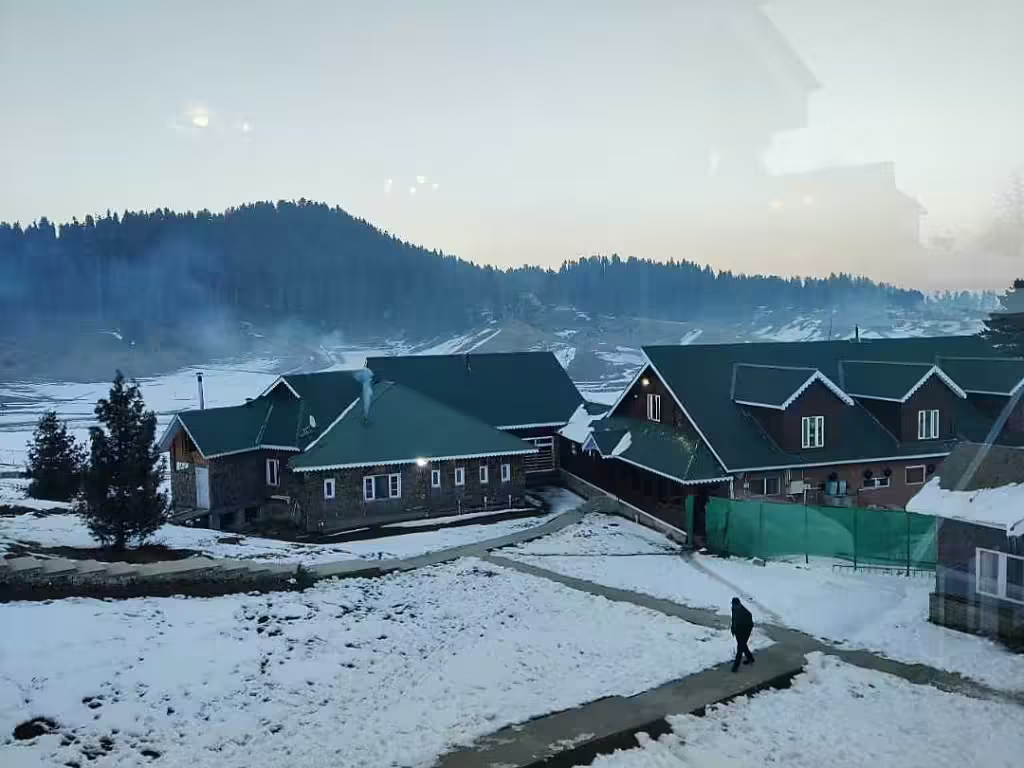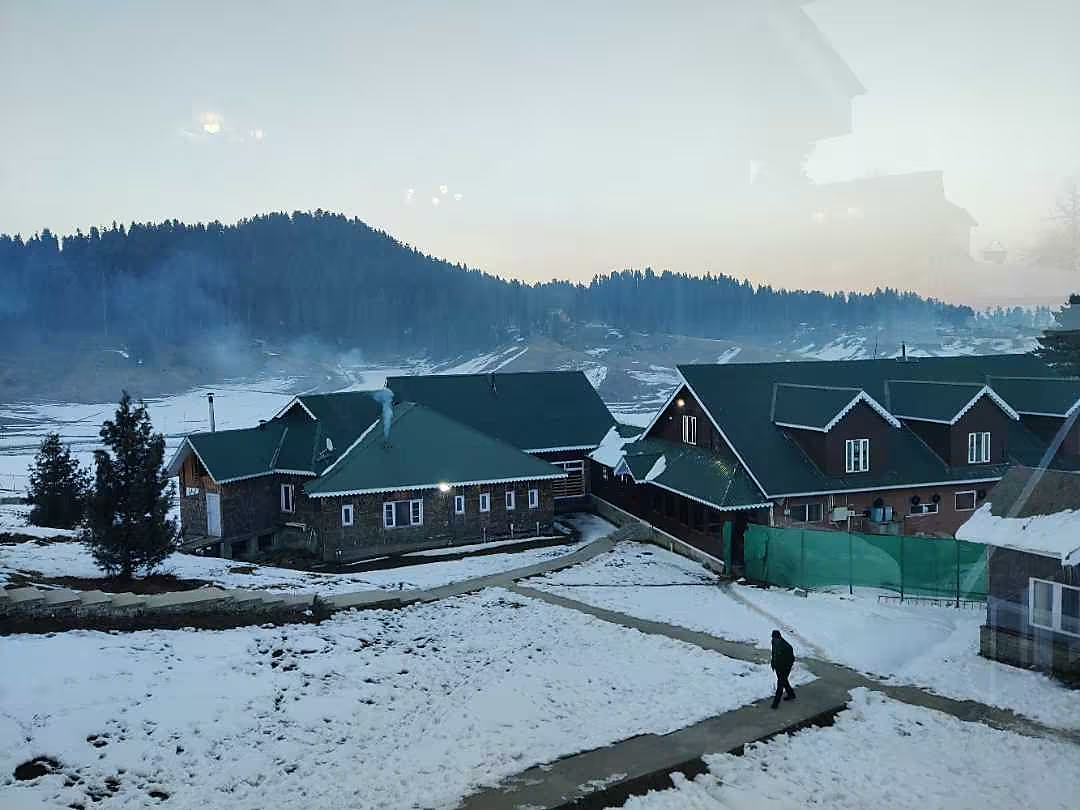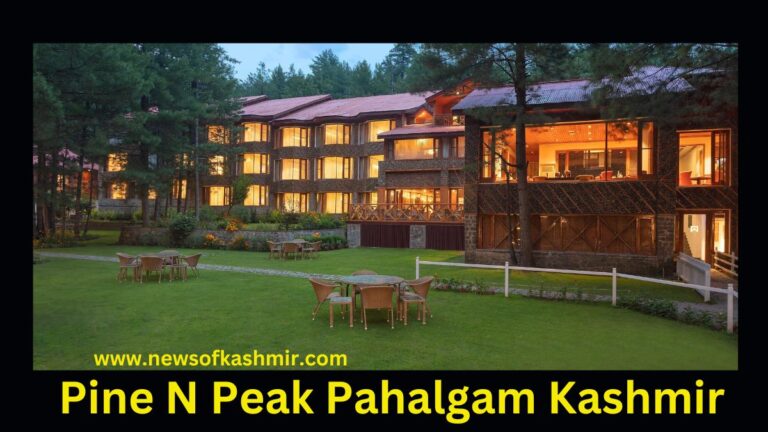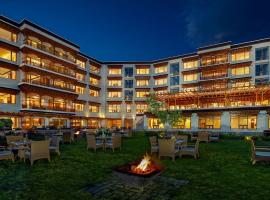Whispers Through Time: Nedou’s Hotel, A Chronicle of Kashmir’s Soul

Nestled in the heart of Srinagar, Kashmir, stands Nedou’s Hotel, a silent sentinel that has witnessed the ebb and flow of history for centuries. Claimed as Asia’s oldest hospitality establishment, its walls hold whispers of bygone eras – colonial extravagance, the birth of a conflict, and the delicate dance of Cold War politics. This isn’t just a hotel; it’s a living tapestry woven with stories of intrigue, romance, and the unyielding spirit of Kashmir.
From Adriatic Shores to the Enchanting Valley
The tale begins with Michael Adam Nedou, an architect-explorer from Ragusa (present-day Dubrovnik, Croatia). His adventurous spirit led him to Lahore, where he built a charming property, now known as the Avari Hotel. But destiny had something more magical in store. Drawn by the ethereal beauty of Gulmarg, Kashmir, Nedou constructed a haven in the meadows in the 1880s. His vision didn’t stop there. A few years later, he built the magnificent Srinagar property, prompting the ruling Dogra Maharaja to build his own palace nearby, as if acknowledging the hotel’s grandeur.

A Family Rooted in Kashmir’s Soil
Nedou’s love affair with Kashmir deepened with his son, Harry. He defied societal norms, falling in love with a local beauty named Mir Jan. Their interfaith marriage, with Harry converting to Islam, further cemented the Nedou family’s ties to the land. This wasn’t the only love story etched in the hotel’s history. Their daughter, Akbar Jehan, married Sheikh Muhammad Abdullah, a pivotal figure in Kashmir’s political landscape. Abdullah led the fight against the Dogra monarchy, later accepting India’s position on Kashmir. Their grandson, Omar Abdullah, became the Chief Minister and currently leads the opposition, showcasing the family’s enduring presence in Kashmir’s political narrative.
A Century of Hospitality, a Period of Uncertainty
For over a century, Nedou’s thrived, welcoming dignitaries, business elites, and Maharajas from across India. Its doors echoed with laughter and the clinking of glasses. However, the 1988-89 armed conflict in Kashmir forced a temporary closure. The Nedou family relocated to New Delhi, and the property, like countless others, was used as a CRPF camp for over two decades. Even today, a part of the hotel remains under their control.

A Glimmer of Hope: Rebuilding the Legacy
In 2007, a new chapter began. The Nedous revived a decades-old agreement with ITC, a prominent Indian hospitality group. Plans were set in motion to renovate and restore the hotel to its former glory. This year, with Chief Minister Mufti Muhammad Sayeed laying the foundation stone, ITC announced a complete redesign and rebuild of Nedou’s. This 250-crore project promises to see the hotel reborn within three years.
An Unmatched Legacy: Grandeur in Stone and Chinar Trees
Sprawling across Maulana Azad Road, Nedou’s is a testament to architectural brilliance. The multi-block, two-storey structure encompasses over 100 kanals (approximately 12.5 acres) of land. Towering chinar trees and sprawling fruit orchards create an idyllic haven, an oasis even by modern standards. “We want to preserve the imperial character of the property,” says Dilnavaz Nedou, the current custodian. “The colonial grandeur will be revived, but with all the modern amenities guests expect.”
Echoes From the Past: Viceroys and Cold War Whispers
The Nedou family cherishes its rich history. They claim to have hosted Lord Mountbatten, the last Viceroy of India, and his wife Edwina. A magnificent 300-piece dinner set handcrafted in England for the viceregal couple serves as a tangible reminder of this visit. Beyond royalty, Nedou’s welcomed prominent figures like the Maharajas of Indore, Gwalior, and Kolhapur, further solidifying its position as a premier social hub.
A Museum of Memories, Weathered but Not Broken
Nedou’s also witnessed the Cold War’s shadow. In 1955, it played host to a high-profile Russian delegation led by Nikolai Aleksandrovich Bulganin and Nikita Sergeyevich Khrushchev, both future Premiers of the USSR. The then Prime Minister of Jammu and Kashmir, Bakshi Ghulam Mohammad, and Sadr-e-Riyasat Karan Singh received the delegation, with Indira Gandhi personally overseeing arrangements in Srinagar, highlighting the hotel’s central role in even international affairs.





